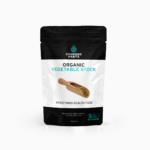The new National Commissioner for Defense and Veteran Suicide Prevention will probe the deaths of more than 400 serving and ex-service men and women who have taken their own lives since 2001. The budget is $40 million, let’s hope food is ONE of the priorities.
My favourite coffee shop for many years was The Red Shed in Mooloolaba. Several baristas and owners passed through there, but the one who has stuck in my mind was Nic the veteran. He was always up for a chat and he made great coffee.
Nic and I talked about the rate of suicide amongst ex-servicemen and the amount of illness. I asked him about the diet of the servicemen both in the barracks and out on the field. He shook his head with dismay and then the next day brought in a rations pack to show me.
Let’s take a look inside the ration pack of our servicemen:
Chunky Chicken and Vegetables
Chicken (48%), stock (water, marine salt, rice flour, sugar, natural vegetable flavours, yeast extract, vegetable protein extract, dehydrated vegetables, (onion, chilli) flavour enhancers (e627, E631) canola oil, carrot (7%), potatoes (6%), corn (5%), celery (3%), onion (1%) modified maize starch (E1412), sugar, salt, vitamins (ascorbic acid, niacin, thiamine, riboflavin) herbs and spices.
Crisp Bread Biscuit
Wheat, vegetable oil, salt, sugar.
Forest Fruits Ration Bar
Rolled oats, glucose (from wheat), sugar, vegetable oil (soybean), cherry pieces (2.5%), contains cherry juice (sucrose, dextrose, glycerin, pectin, rice flour, wheat fibre, citric acid, flavour, sodium metabisulphite, colour (124, 122), invert sugar, desiccated coconut (sulphur dioxide), humectant (glycerin), sorbitol, wheat flakes (wheat, raw sugar, salt, malt extract, flavor).
High Energy Sports Drink
Sugar, dextrose, citric acid, modified food starch, potassium citrate, salt, sodium citrate, ascorbic acid, potassium phosphate, natural and artificial flavour, sodium phosphate, artificial colour (129, 133) and calcium phosphate
Chocolate Ration
Cocoa butter, dextrose, sugar, milk solids, cocoa mass, emulsifier (soy lecithin), vitamin premix (ascorbic acid, retinol (vitamin A, acetate, cornstarch, thickener (414)), corn oil, thiamine, hydrochloride.
Tomato Soup
Castor sugar, tomato powder (18%) (contains preservative 220), potato starch, maltodextrin (wheat) onion powder, skim milk powder, beverage whitener, vegetable gum (412), salt, natural colours (beet red and turmeric) food acids (330, 331) mineral salt (508), natural flavours, yeast extract, vegetable oil, herbs and spices, flavour enhancers (627, 631).
I was totally dismayed that our servicemen are being fed a diet of chemicals, with dubious food additives. In the mess the food isn’t much better. How can a human sustain physical and mental hardship when it doesn’t have the tools to be resilient and quick-thinking?
Much of the diet is based on sugar. We know that a brain fed sugar is very different from a brain that is fed proteins and fat. The metabolism changes, so much so that a strict carbohydrate-restricted diet can help in epilepsy, with navy seal seizures underwater, certain brain tumours, to name a few. Yet we seem to have an archaic food system for the very people who protect us and our country.
Years of this food would render both the body and mind weak. And think of all our men and women go through during service, including integration back into normal life and society, loss of limbs and physical injury, psychological issues and so much more.
Unless you’ve been under a rock over the past few decades you will know that it’s not only our servicemen who are in trouble but the broader community, too. And not just concerning our physical health but also our mental health. Food is being passed over as something that can help both physically and mentally. Instead institutions with lock downs and crappy food, electric shock treatment and drugs with side effects that cause suicidal and homicidal tendency for those with mental health issues, seems to be the norm.
Just take a look at our hospital food. It is a real disconnect that hospital food is junk and yet the patients need to heal and get well. Our aged care homes perpetuate health issues, both physical and mental, by dishing up cheap foods filled with chemicals.
The suicide rate for ex-servicemen in Australia is 18 per cent higher than the broader population and ex-servicewomen are twice as likely to take their own lives as other Australian women.
I’m hoping that part of the budget for the new National Commissioner for Defense and Veteran Suicide Prevention will go towards the food we feed our servicemen and women, both on the field and off. I hope that it will be far more superior than what they are eating now.
It’s time for the Australian government to realise prevention is far better than cure. We believe that everything begins and ends with food at Changing Habits. Of course there are other things to be looked at, but when we begin with food and agriculture, and regenerative farming is being employed, then the health and economy of the nation will change.
Cyndi O’Meara
Nutritionist



